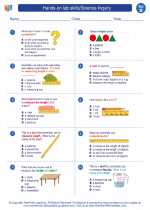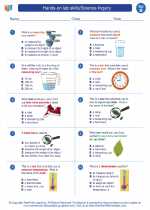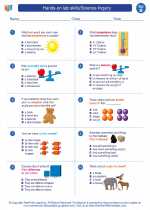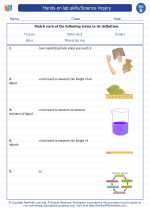Oxidation
Oxidation is a chemical reaction in which a substance loses electrons. This process commonly involves the addition of oxygen to a substance or the removal of hydrogen from a substance. Oxidation reactions often involve the production of energy and the formation of new compounds.
One of the most familiar examples of oxidation is the rusting of iron. When iron is exposed to oxygen and moisture, it undergoes a chemical reaction in which it loses electrons, forming iron oxide (rust).
Study Guide: Understanding Oxidation
- Definition: What is oxidation? Describe the process and give examples of oxidation reactions.
- Oxidation and Reduction: Understand the relationship between oxidation and reduction. What is the role of electrons in oxidation reactions?
- Oxidizing Agents: Identify common oxidizing agents and their roles in causing oxidation reactions.
- Applications: Explore the practical applications of oxidation in everyday life, such as in the production of energy and the preservation of food.
- Preventing Oxidation: Discuss methods for preventing or slowing down oxidation, such as the use of antioxidants and protective coatings.
Remember that oxidation is a fundamental concept in chemistry and has significant implications in various fields, including industry, environmental science, and biology. Understanding oxidation will provide insights into a wide range of natural and man-made processes.
Be sure to review the study guide and practice applying the concepts of oxidation to real-world scenarios to reinforce your understanding of this important chemical process.
.◂Science Worksheets and Study Guides Second Grade. Hands-on lab skills/Science Inquiry

 Worksheet/Answer key
Worksheet/Answer key
 Worksheet/Answer key
Worksheet/Answer key
 Worksheet/Answer key
Worksheet/Answer key
 Vocabulary/Answer key
Vocabulary/Answer key
